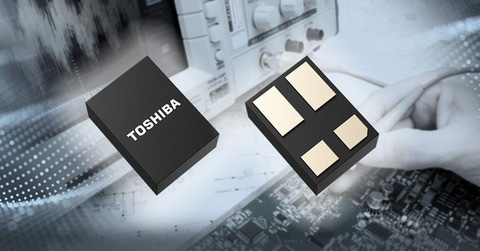Toshiba Electronic Devices & Storage Corporation ("Toshiba") has launched "TLP3475W," a photorelay in a small, thin WSON4 package. It reduces insertion loss and suppresses power attenuation in high-frequency signals and is suitable for the pin electronics of semiconductor testers, which use a large number of relays and require high-speed signaling. Volume shipments start today.
 Toshiba: TLP3475W, a photorelay in a small, thin WSON4 package. Image Credit: Business Wire
Toshiba: TLP3475W, a photorelay in a small, thin WSON4 package. Image Credit: Business Wire
Toshiba’s optimized package designs reduces parasitic capacitance and inductance in the new photorelay. This reduces insertion loss and improves the transmission characteristic of high-frequency signals to 20GHz (typ.), about 1.5 times lower than Toshiba’s current product, TLP3475S.
TLP3475W uses a small, thin WSON4 package that is only 0.8mm (typ.) thick, making it the smallest photorelay in the industry to realize improved high-frequency signal transmission characteristics. It is 40% lower in height than Toshiba’s ultra-small S-VSON4T package, allowing more products to be mounted on the same circuit board, and will contribute to improved measuring efficiency.
Toshiba will continue to expand its product line-up to support semiconductor testers that deliver higher speeds and greater functionality.
Applications
- Semiconductor testers (high-speed memory testers, high-speed logic testers, etc.)
- Probe cards
- Measuring equipment
Features
- Industry’s smallest WSON4 package: 1.45mm×2.0mm (typ.), t=0.8mm (typ.)
- Improving to pass the high-frequency signals : f=20GHz (typ.) @Insertion loss(S21) = -3dB
- Normally open function (1-Form-A)